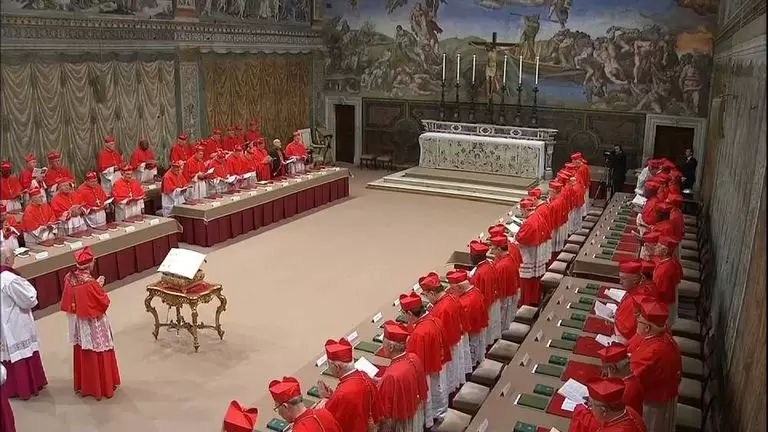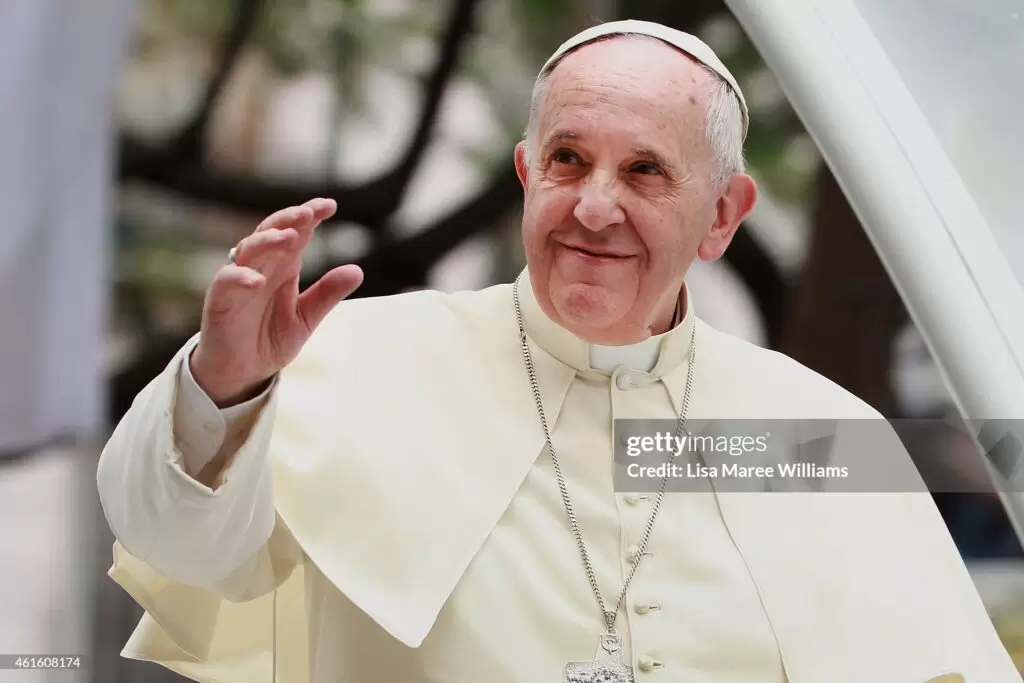The Vatican has set May 7 as the start date for the sacred process that will determine who leads the world’s 1.3 billion Catholics following Pope Francis’ death on April 21. As cardinals from across the globe gather in Rome, a carefully choreographed blend of ancient tradition and modern politics is unfolding.
The Pre-Conclave Period: Getting Ready for a Momentous Decision
Right now, cardinals are participating in daily meetings called “general congregations.” These gatherings serve a crucial purpose: they allow Church leaders from different countries to get to know each other before making their momentous decision.
Church law requires cardinals to assemble in Rome within 15 to 20 days after a pope dies or resigns. This timeframe ensures cardinals worldwide can reach Rome, while preventing a lengthy leadership gap that might create uncertainty for the Church.
Many cardinals are staying at the Domus Sanctae Marthae, a Vatican guesthouse where they will also reside during the actual conclave. In these days before formal voting begins, important informal conversations are happening. Cardinals are sharing meals, having private discussions, and quietly forming relationships that could influence their votes.
All cardinals, including those over 80 who cannot vote, may participate in these pre-conclave meetings. These sessions help everyone understand the major challenges facing the Church before the 135 voting-eligible cardinals enter the Sistine Chapel on May 7.

The Selective Process: What Guides Cardinal Voting
The voting cardinals weigh numerous considerations before casting their ballots for the next leader of the Catholic Church.
Regional concerns often influence voting patterns significantly. Northern European cardinals might prioritize candidates who can address declining church attendance in their region. Those from developing nations might favor someone who speaks powerfully about global inequality. Cardinals from the Middle East typically value expertise in interfaith dialogue, while those from regions facing religious persecution seek a strong advocate for religious freedom.
Personal compatibility also plays a crucial role in the selection. A cardinal might support someone with whom they’ve worked closely on Vatican committees or international Church projects. The ability to communicate in multiple languages can boost a candidate’s appeal, as can their reputation for listening well to diverse viewpoints.
Agreement on religious beliefs plays a major role in the voting process. Cardinals look at how candidates understand and explain Catholic teachings. Some cardinals want someone who sticks closely to traditional Church rules, while others prefer someone who might bring new ideas to today’s problems. These different preferences often come from the varied needs of Catholics living in different parts of the world.
The broader context of world affairs inevitably shapes the process too. In an era of heightened geopolitical tensions, a cardinal with diplomatic experience might gain support. Economic downturns might favor candidates with financial acumen. Health crises could highlight those with backgrounds in medical ethics. The age and stamina of candidates factor in as well, reflecting whether the electors desire a pontificate lasting decades or one serving as a transitional leadership period.
The Conclave Process: Tradition and Secrecy
On May 7, the actual conclave will begin. The word “conclave” comes from Latin meaning “with a key,” referring to the locked doors that ensure complete privacy during the election.
The 135 cardinals under age 80 will gather in the Sistine Chapel, surrounded by Michelangelo’s famous artwork. There, they will follow voting procedures largely unchanged for centuries.
The Vatican employs strict security measures during this time. Cardinals cannot bring electronic devices into the voting area. Special equipment blocks all signals to prevent communication with the outside world. The cardinals stay completely isolated until they choose a new pope.
Each cardinal writes his choice on a paper ballot and places it in a special container. For someone to become pope, they must receive votes from two-thirds of the cardinals – 90 votes in this case. If no one reaches this threshold in the early rounds, voting continues.
When the cardinals finally select someone, the senior cardinal will approach the winner and ask: “Do you accept your canonical election as Supreme Pontiff?” If he says yes, he immediately becomes pope. The cardinals then ask what name he wishes to use as pope.
The world’s first sign of a successful election will be white smoke rising from the Sistine Chapel chimney. Only then will the new pope appear on the balcony of St. Peter’s Basilica to give his first blessing.
Potential Candidates and Challenges Ahead
Several cardinals are considered possible choices to succeed Pope Francis:
- Cardinal Peter Turkson from Ghana, who could become the first modern African pope
- Cardinal Luis Antonio Tagle from the Philippines, representing the growing Asian Catholic community
- Italian Cardinal Matteo Zuppi, known for working effectively with various Church factions
The next pope will inherit significant challenges. Church membership continues to decline in Europe and North America while growing in Africa and parts of Asia. Debates continue about how the Church should respond to modern social issues, and financial and administrative reforms remain unfinished.
Pope Francis’ Legacy
Pope Francis, born Jorge Mario Bergoglio in Argentina, led the Church for 11 years with a distinctive approach. As the first Latin American pope and first Jesuit pope, he emphasized helping the poor, protecting the environment, and reforming Vatican operations.
His simple lifestyle and direct communication style won many admirers, though some traditionalists questioned his more flexible approach to certain Church practices. His successor will need to decide which aspects of his legacy to continue and which areas might need a different direction.

The World Watches
The selection of a new pope matters beyond religious circles. The Catholic Church influences global conversations about ethics, human rights, and international cooperation. The decision made behind those locked doors will shape not just the Church but could affect responses to worldwide challenges from poverty to climate change.
As cardinals prepare for this sacred duty, Catholics around the world are holding special prayer services for divine guidance in this crucial transition period. Soon, the faithful will learn who will lead them into the Church’s next chapter.



